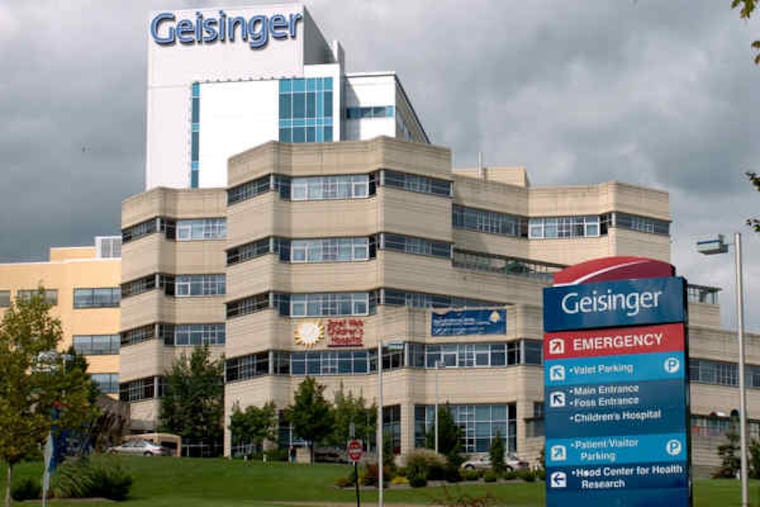California health giant Kaiser Permanente is making a big move into Pa. with Geisinger acquisition
The California-based health care giant's move into Pennsylvania comes as the industry experiences a period of financial tumult.

Kaiser Permanente, the nation’s largest nonprofit health system, announced Wednesday that it will acquire Pennsylvania’s Geisinger Health and form a new nonprofit corporation called Risant Health.
The purpose of Risant will be to acquire other health systems providing community-based care.
Both Kaiser, which is based in California, and Geisinger own hospitals and insurance companies, an integrated model they argue allows them to provide cheaper and better care. Risant will make that model available to the health systems that it acquires, they said.
Geisinger has 10 hospitals in north central Pennsylvania offering care outside of big cities and major academic research institutions. Geisinger’s insurance arm is one of five Medicaid companies in the Philadelphia area.
The current CEO of Geisinger, Jaewon Ryu, will become CEO of Risant if the deal is finalized.
“Geisinger is excited for what joining Risant Health will mean both for our system and for the communities we serve in Pennsylvania,” he said in a news release. Risant will have its headquarters in Washington, D.C.
Questions about big health systems
The creation of Risant comes as giant multistate nonprofit health systems are facing questions about how they differ from for-profits. Critics contend they provide too little charity care and have accumulated huge investment portfolios.
Hospital executives and other health-care experts say the industry is in a period of extreme financial pressure that is forcing them to make big moves in order to continue thriving financially.
The model adopted by Kaiser and Geisinger is part of a significant trend in health care to get doctors and hospitals to take on more financial risk for the care they provide.
Kaiser and Geisinger have been doing that for many years through their insurance arms, though with different models.
Geisinger sells insurance, but its hospitals and clinics also accept patients that have competitors’ insurance. In Pennsylvania, another major player with a similar approach is UPMC. In 2021, Thomas Jefferson University adopted a similar model when it acquired Health Partners Plans. Inc., which has Medicaid and Medicare plans.
Kaiser, which owns 39 hospitals in eight states and Washington, D.C., has a closed system, meaning that all of its patients have its insurance.
“We know fully replicating [Kaiser Permanente’s] closed integrated care and coverage model is not viable in all communities,” Greg. A. Adams, Kaiser Permanente’s chair and CEO, said in a release.
Losses at Kaiser and Geisinger
The model does not guarantee profitability. Kaiser had an operating loss of $1.3 billion last year on $95.4 billion in revenue.
Geisinger was long profitable and known for providing high-quality care, but in recent years, the system’s financial results have weakened. In February, Moody’s Investors Service downgraded Geisinger’s credit rating to A2 from A1, citing challenges expected to result in “weak operating cash flow for a protracted period.”
This was Geisinger’s third downgrade by Moody’s since 2019, but its rating remains strong.
Last year, Geisinger had an operating loss of $239 million on $6.87 billion in revenue.
The organization has not always succeeded with acquisitions. It acquired Holy Spirit Health System in Camp Hill, Pa., in 2014, but sold it to Penn State Health just six years later in 2020.
Similarly, Geisinger acquired AtlantiCare in South Jersey in 2015, only to see AtlantiCare become independent again in 2020.